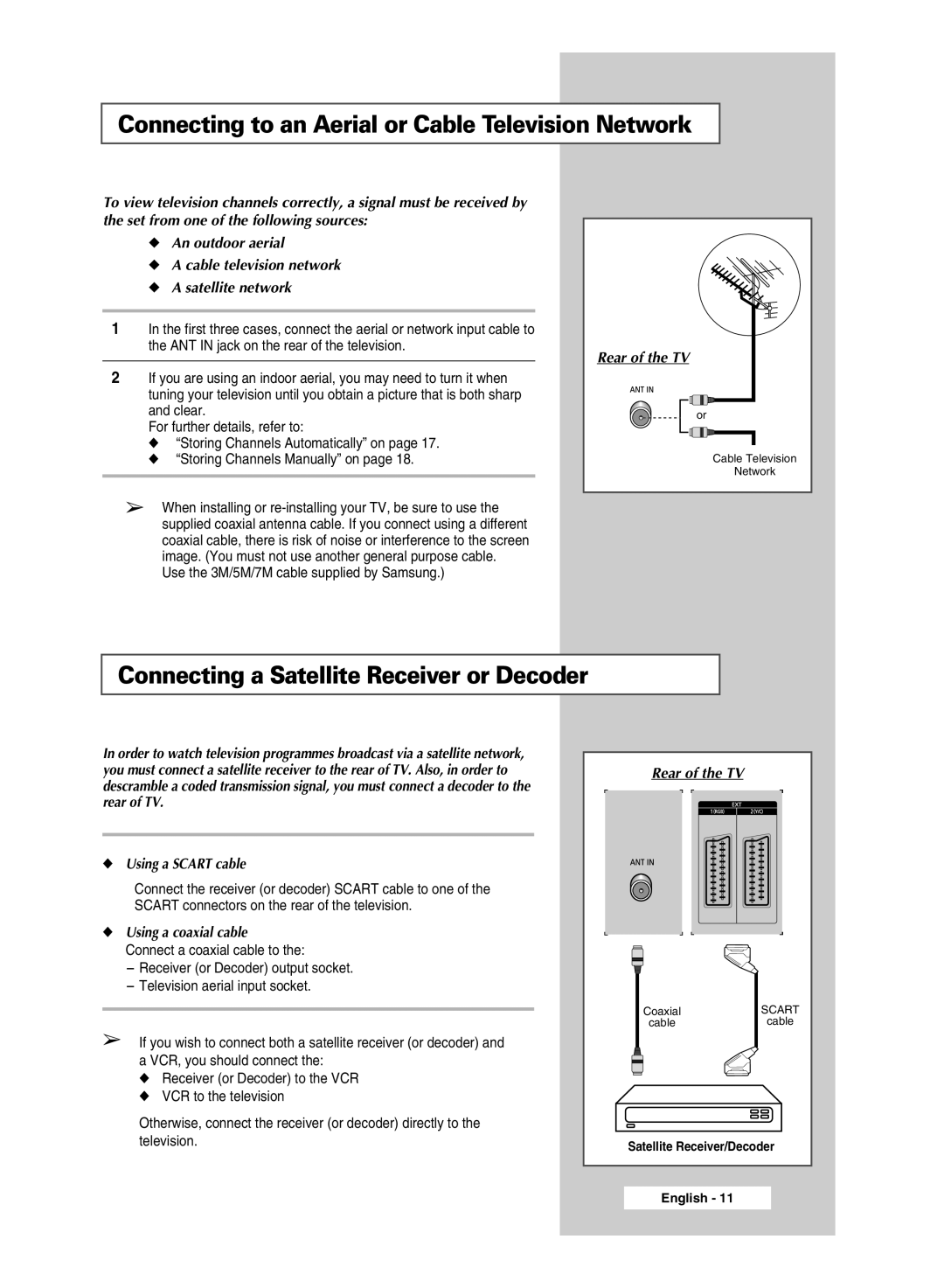
Connecting to an Aerial or Cable Television Network
To view television channels correctly, a signal must be received by the set from one of the following sources:
◆An outdoor aerial
◆A cable television network
◆A satellite network
1In the first three cases, connect the aerial or network input cable to the ANT IN jack on the rear of the television.
2If you are using an indoor aerial, you may need to turn it when tuning your television until you obtain a picture that is both sharp and clear.
For further details, refer to:
◆“Storing Channels Automatically” on page 17.
◆“Storing Channels Manually” on page 18.
➢When installing or
Use the 3M/5M/7M cable supplied by Samsung.)
Rear of the TV
or
Cable Television
Network
Connecting a Satellite Receiver or Decoder
In order to watch television programmes broadcast via a satellite network, you must connect a satellite receiver to the rear of TV. Also, in order to descramble a coded transmission signal, you must connect a decoder to the rear of TV.
◆Using a SCART cable
Connect the receiver (or decoder) SCART cable to one of the SCART connectors on the rear of the television.
◆Using a coaxial cable
Connect a coaxial cable to the:
-Receiver (or Decoder) output socket.
-Television aerial input socket.
➢If you wish to connect both a satellite receiver (or decoder) and a VCR, you should connect the:
◆Receiver (or Decoder) to the VCR
◆VCR to the television
Otherwise, connect the receiver (or decoder) directly to the television.
Rear of the TV
Coaxial | SCART |
cable | cable |
Satellite Receiver/Decoder
English - 11
